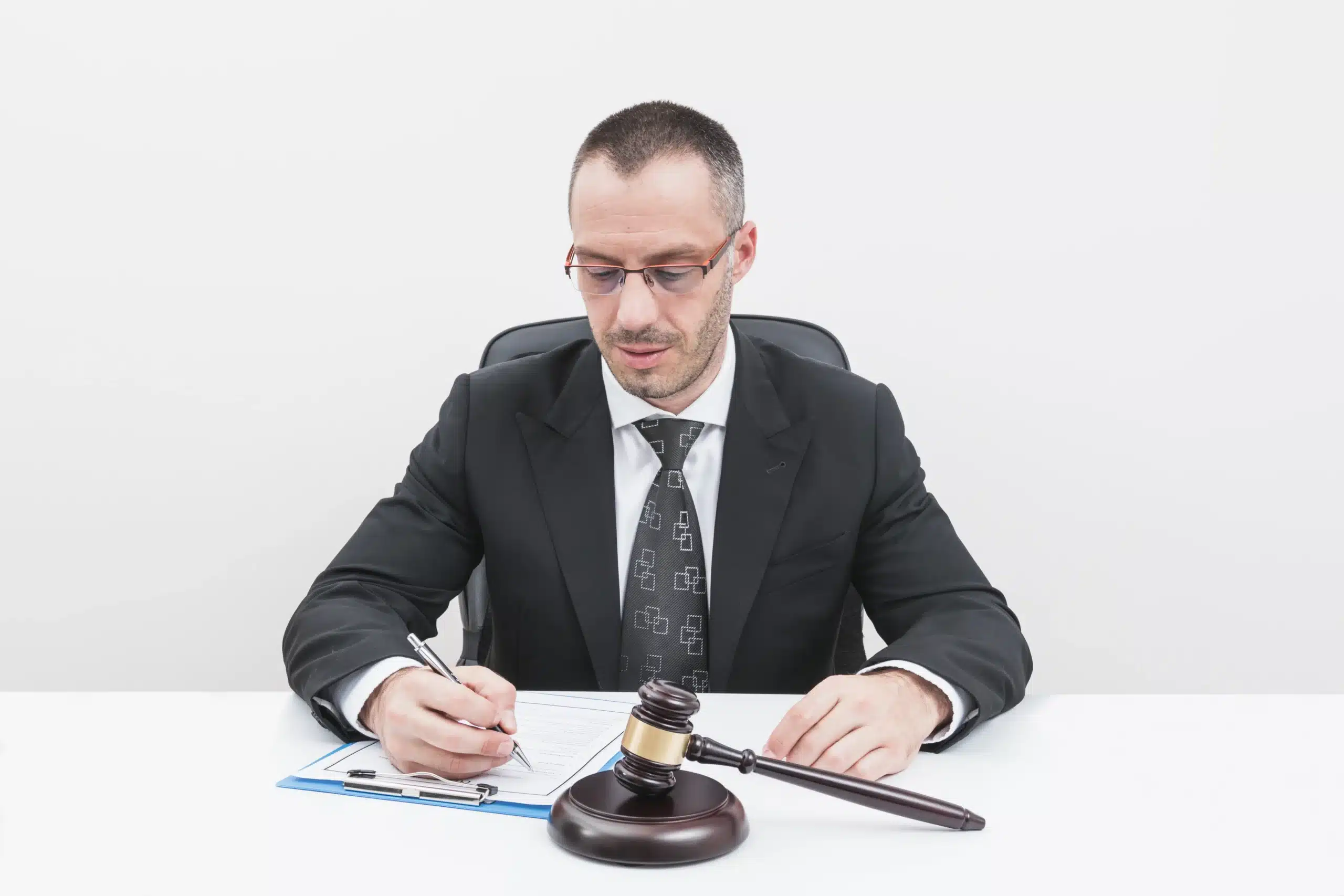Stalking is a serious crime and can be legally prosecuted if the accused perpetrator is found guilty. Unfortunately, it can also be difficult to prove that someone has stalked another person. Fortunately, however, those who have been threatened or subjected to stalking may have legal recourse. This article will detail how to file for a stalking defense.
What is Stalking?
Stalking is a pattern of behavior in which one person intimidates or harasses another person. Typically by following them or making unwanted contact. Stalking can be a serious crime and can have a devastating impact on the victim. If you are being stalked, it is important to take action to protect yourself. As well as get help from law enforcement or a victim advocate.
Reasons to File for Stalking Defense
If you are being stalked, you may be feeling frightened, helpless, or alone. You are not alone. Stalking is a serious crime that can have a profound impact on the victim. Victims of stalking may experience a wide range of consequences as a result of the stalking. Being the victim of stalking consequences can include:
- Post-Traumatic Stress Disorder (PTSD)
- anxiety
- depression
- insomnia
- social isolation
- physical injury
There are many reasons why someone might file for a stalking defense. Here are some of the most common reasons:
One reason is to protect themselves from further harm. If you are being stalked, it is important to take action to protect yourself from further harm. Filing for a stalking defense can help put an end to the harassment and keep the stalker away from you.
Another reason to get a restraining order. A restraining order is a court order that requires the stalker to stay away from you. Additionally to refrain from contacting you. Restraining orders can provide valuable protection for victims of stalking.
Thirdly, filing for a stalking defense can send a strong message to the stalker that their behavior is not acceptable. It can also help discourage the stalker from continuing their behavior.
Lastly to get support. Filing for a stalking defense can help connect you with support services in your community. These services can provide you with emotional support. As well as practical assistance as you deal with the effects of being stalked. Click here for more information.
Filing for a Temporary Protection Order
If you are experiencing stalking behavior, harassment, or domestic violence, you may qualify for a temporary protection order to help keep you safe. A temporary protection order is a legal document issued by the court that provides immediate protection from the person who is causing you harm. This type of order is designed to stop unwanted contact and prevent further violence or harassment until a full court hearing can be held.
To file for a temporary protection order, you will need to visit your local courthouse and request the necessary forms from the court clerk. When you fill out the forms, be sure to describe the stalking behavior or violence you have experienced in as much detail as possible. Include specific examples of harassment, threats, or any actions that made you feel afraid. The court will review your request and may grant a temporary protection order the same day, especially if there is evidence of immediate danger.
A temporary protection order typically lasts up to 14 days, providing you with short-term safety while you prepare for a court hearing. At the hearing, both you and the person accused of stalking or violence will have the opportunity to present evidence and statements. The judge will then decide whether to extend the protection order for a longer period.
Filing for a temporary protection order is an important step in protecting yourself from stalking, harassment, or domestic violence. If you are unsure about the process or need help completing the forms, consider reaching out to a lawyer or victim advocate for guidance. Remember, the court is there to help you, and taking action can make a significant difference in your safety and peace of mind.
How to File for a Stalking Defense
If you are being stalked, there are steps you can take to file for a stalking defense.
The first step is to contact your local police department and file a report. In some jurisdictions, you must file a police complaint before you can petition the court for stalking-specific protective orders. Be sure to include as much detail as possible, such as the stalker’s name, address, and any threatening behavior they have displayed, including whether they used phone calls, text messages, or social media posts to harass or threaten you. The age of the victim can also be a factor in the severity of the crime and legal considerations.
Next, gather and preserve all forms of evidence you have of the stalking, such as text messages, emails, voicemails, phone call logs, and photos of incidents. Keep a log of all incidents, including the date, time, location, and the course of conduct. This will be helpful in building your case. You should keep copies of everything you provide to law enforcement or the court regarding stalking cases. Police reports are important supporting evidence and should be handled with confidentiality.
When applying for a protection order, prepare a confidential information sheet and include as much information as possible. Remember that confidential information must be protected and may need to be redacted before submitting documents, as court filings can become part of the public record. Complete all forms thoroughly and accurately; some forms can be downloaded for free using a computer. If you are not filing electronically, you may need to submit your forms by mail. Proper service of court documents, including notice of hearings, is essential to ensure the effectiveness of the court’s service.
You must file your application for a protection order in the justice court for the township where the stalking occurred. After you file your documents, the court will assign your case to a judge who will review your information. If the judge grants a temporary order, further steps will follow. The Stalking Protection Order process requires a minimum of two court hearings over the course of at least two weeks. A Temporary Protection Order is only effective for up to forty-five days unless extended by the court.
Proof such as text messages, phone calls, emails, and social media posts is crucial to establish the course of conduct and intent. The prosecution must provide evidence of your alleged actions to prove stalking, and if your accuser doesn’t have records of your interactions, your criminal defense attorney may be able to get the case dismissed for lack of evidence. The reasonable person standard is used to determine if the conduct would cause fear or distress. Identifying stalking behaviors—including harassment, threats, and repeated conduct—is essential.
Stalking charges can result in criminal penalties, and perpetrators may be arrested. Criminal stalking is a serious offense, and stalking laws focus on repeated actions causing fear. Stalking may get worse or become violent over time, and can involve the use of technology, sometimes referred to as cyberstalking. Each state has its own variation of how it defines stalking, including requirements to define the crime. Most stalking charges include excessive and unsolicited communications.
It is important to write and complete all forms accurately, as experienced defense attorneys can make a big difference in your case. For comprehensive guidance on what to do after a domestic violence attack, consult reliable resources. If you are in immediate danger, contact emergency services like 911.
For example, you should gather supporting documents such as police reports, text messages, and emails, and file your application in the appropriate court where the conduct or phone calls occurred.
What Evidence Should Be Included
If you are a victim of stalking, there are a few key pieces of evidence that you should always include when filing for a stalking defense. First, keep a detailed log or diary of all the stalking incidents. This will help to paint a clear picture of the behavior pattern and any escalation over time. Secondly, gather any physical evidence you have, such as letters, emails, text messages, or social media messages. These can be vital in proving the intent of the stalker. You should also include police reports and phone records as supporting evidence, as these documents can strengthen your case by showing a pattern of excessive and unsolicited communications, such as repeated phone calls. When submitting evidence, it is important to keep your information confidential, as your privacy and rights are protected by law. Finally, try to obtain witness statements from anyone who has seen the stalking behavior take place. This can be helpful in corroborating your account of events. Most stalking charges include excessive and unsolicited communications, and the prosecution must provide evidence of your alleged actions to prove stalking.
How To Build A Solid Case
If you’re the victim of stalking, you know how important it is to have a solid case against your attacker. Here are some tips on how to build a strong case against a stalker:
- Keep detailed records of all incidents. Include dates, times, locations, and any witnesses. Proof is crucial—documenting and identifying stalking behaviors helps law enforcement and the court understand the pattern of conduct. Stalking laws focus on repeated actions causing fear, so your detailed log is essential to show this pattern. The court will also consider whether a reasonable person would view the conduct as threatening or offensive.
- Save all communications from the stalker, including texts, emails, voicemails, and social media messages.
- Take photos or videos of any damage caused by the stalker, including property damage or threats made in person or online.
- Get a restraining order if possible. This will provide law enforcement with additional tools to protect you and hold the stalker accountable for their actions.
- Speak to an experienced stalking defense attorney to discuss your legal options and make sure your case is as strong as possible before going to court.
After the Hearing
If you have been the victim of stalking, you may be feeling relieved after your hearing. However, it is important to remember that stalking doesn’t necessarily stop after the hearing. In fact, in some cases, the stalking may escalate after the hearing.
If you are still being stalked after the hearing, there are a few things you can do:
– First, keep a record of all incidents of stalking. Include the date, time, location, and any other relevant details.
– Second, tell someone you trust about the stalking and ask them to keep an eye out for anything suspicious.
– Third, consider changing your routine or patterns to make it more difficult for the stalker to follow you.
– Fourth, consider getting a restraining order against the stalker.
Filing for a stalking defense can be an intimidating process, but it is important that victims of such behaviors take the necessary steps to protect themselves. We have outlined the steps you should take when filing for a stalking defense, including obtaining your police report and seeking professional legal advice. Remember that you are not alone in this fight; there are resources available to help you throughout the entire filing process. It is essential that you do what is needed to feel safe and secure during these times. Don’t hesitate to contact local law enforcement if additional assistance is needed along the way.



